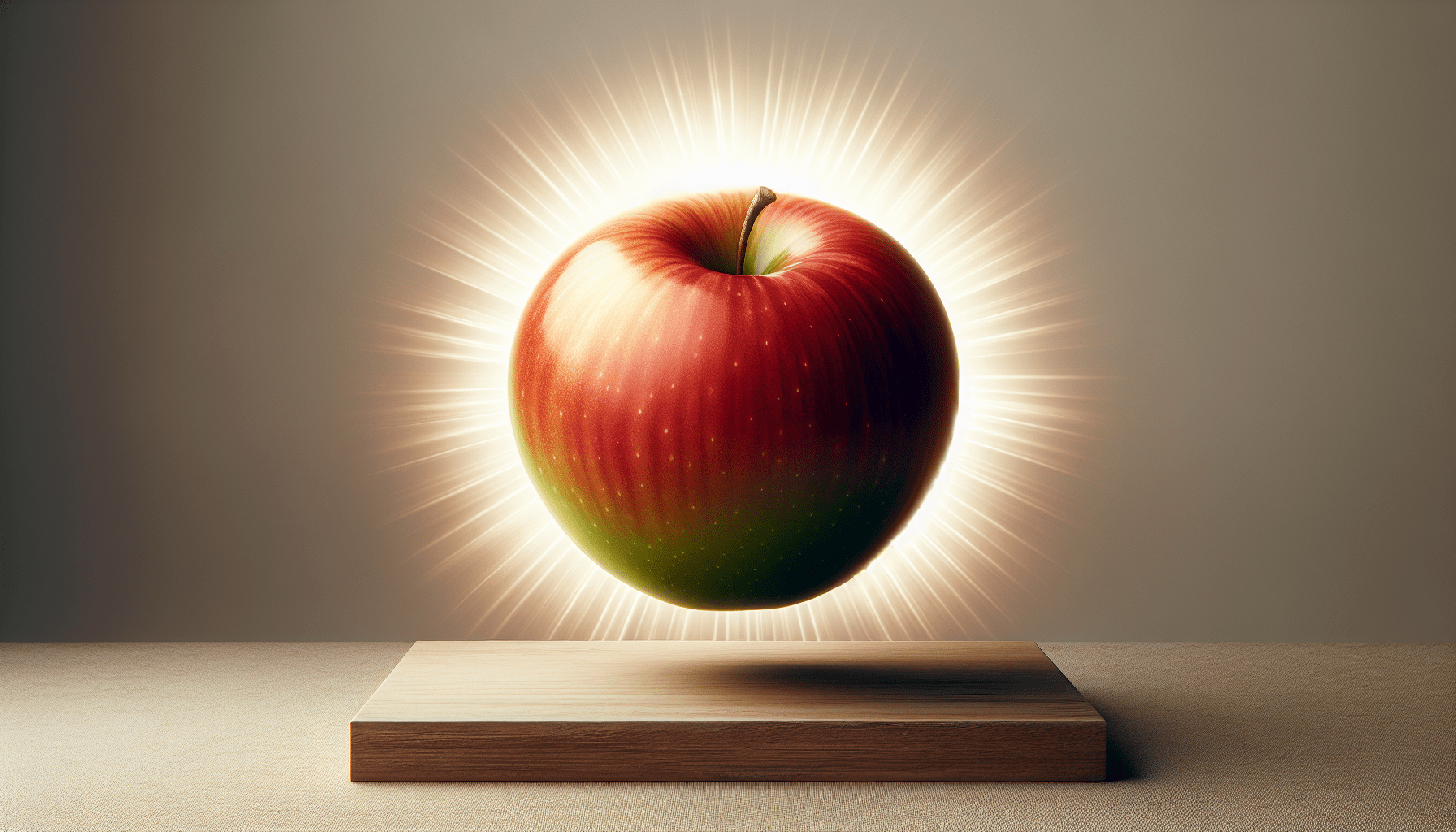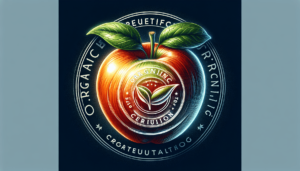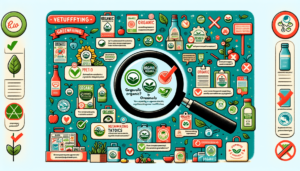Hey there, friends! We often find ourselves wondering if the organic labels on those processed foods truly make a difference for our health. With shelves brimming with options, it can be tricky to navigate the claims and decide what’s best for us. Join us as we dive into the world of organic processed foods, examine what makes them different, and determine whether they genuinely offer a healthier alternative. Let’s uncover the truth together! Are Organic Processed Foods Truly Healthier?
Are organic processed foods healthier? This question has lingered in our minds as we’ve strolled down the grocery aisles, scanning labels. With the organic market booming and more organic options filling the shelves, it’s essential to understand if these foods truly provide superior health benefits compared to their non-organic counterparts. Let’s dig into this topic and uncover the truths and myths surrounding organic processed foods.
What Are Organic Processed Foods?
Before diving into health benefits, we must understand what organic processed foods are. Essentially, these are food products that are made from organically grown ingredients and have gone through some form of processing, such as canning, freezing, or baking.
Organic Farming Standards
Organic farming operates under stringent standards set by certifying bodies like the USDA in the United States. These standards encompass several essential principles:
- No Synthetic Pesticides or Fertilizers: Organic farmers use natural alternatives.
- No Genetically Modified Organisms (GMOs): The use of GMOs is prohibited.
- Animal Welfare: Animals must have access to the outdoors and be raised in humane conditions.
- No Artificial Additives: This includes preservatives, colorings, and flavorings.
Processed vs. Whole Organic Foods
It’s important to differentiate between organic whole foods and organic processed foods. While organic whole foods are minimally processed and closer to their natural form (like fruits, vegetables, nuts), organic processed foods have undergone more substantial modification and can include items like organic cookies, cereals, and canned soups.
Nutritional Content of Organic Processed Foods
One of the primary reasons many of us opt for organic foods is the perceived nutritional superiority. But what do the studies say?
Vitamins and Minerals
Research indicates that organic fruits and vegetables can have higher levels of certain vitamins and minerals compared to their conventionally grown counterparts. This is attributed to the natural farming practices which support soil health. However, when it comes to processed organic foods, the difference isn’t always as clear-cut.
A comparison between organic and non-organic processed foods in terms of vitamin and mineral content might look like this:
| Nutrient | Organic Processed Foods | Non-Organic Processed Foods |
|---|---|---|
| Vitamin C | Slightly Higher | Standard |
| Iron | Similar | Similar |
| Calcium | Similar | Similar |
| Dietary Fiber | Higher | Lower |
Antioxidants and Phytochemicals
Organic foods, including some processed variants, have been found to contain higher levels of antioxidants and phytochemicals. These compounds are vital for reducing oxidative stress and inflammation in our bodies. Studies have shown that organic berries, for example, can be richer in anthocyanins and flavonoids compared to their non-organic versions.
Fatty Acids
With processed foods, the type and quality of fats used are crucial. Organic processed products generally avoid hydrogenated oils and harmful trans fats. Organic dairy and meat products have been found to have a better omega-3 to omega-6 fatty acid ratio, beneficial for cardiovascular health.
Additives and Preservatives
Another significant concern for many of us revolves around the additives and preservatives used in processed foods. Organic certification standards strictly limit the use of synthetic substances.
Common Additives in Non-Organic Processed Foods
Non-organic processed foods often contain various additives to enhance flavor, texture, and shelf life. Some of these include:
- Artificial Preservatives: Such as BHA, BHT, and sodium benzoate.
- Artificial Colors: Like Red No. 40 and Yellow No. 5.
- Flavor Enhancers: Including monosodium glutamate (MSG).
Additives in Organic Processed Foods
Organic processed foods, on the other hand, either avoid these substances or use natural alternatives like:
- Natural Preservatives: Such as ascorbic acid (Vitamin C) and tocopherols (Vitamin E).
- Natural Colors: Such as beet juice, turmeric, and spirulina extract.
- Natural Flavors: Derived from essential oils and plant extracts.
Impact on Health
To assess the health benefits, we need to look at multiple dimensions – from chronic disease prevention to immediate health impacts.
Chronic Disease Prevention
The long-term consumption of organic foods might reduce the risk of chronic diseases:
- Cancer: Some studies suggest lower occurrences of certain cancers in individuals consuming primarily organic foods due to reduced exposure to pesticides.
- Heart Disease: The better omega-3 to omega-6 ratios in organic meats and dairy can promote heart health.
- Obesity and Metabolic Syndrome: Consumption of fewer artificial additives and preservatives may help in managing body weight and metabolic functions.
Immediate Health Impacts
In the short term, consuming organic processed foods can also have discernible benefits:
- Allergies and Sensitivities: Individuals sensitive to specific synthetic additives or pesticides might benefit from organic foods.
- Better Digestion: Higher fiber content in some organic processed foods can aid digestion.

Environmental and Ethical Considerations
Health extends beyond our personal well-being — it includes environmental and ethical dimensions that ultimately impact our quality of life.
Environmental Impact
Organic farming practices have several environmental benefits:
- Soil Health: Organic farming improves soil fertility and biodiversity.
- Water Conservation: Less reliance on chemical fertilizers and pesticides means reduced contamination of waterways.
- Climate Change: Organic farming generally has a lower carbon footprint.
Ethical Considerations
Ethical considerations also play a significant role.
- Animal Welfare: Organic standards often mandate better living conditions for livestock.
- Fair Trade: Many organic products come with Fair Trade certification, ensuring better conditions for farmers and workers.
Economic Factors
Cost often becomes a decisive factor when choosing organic processed foods. Let’s explore why organic items tend to be pricier and if they offer value for money.
Why Are Organic Foods More Expensive?
Several factors contribute to the higher costs of organic foods:
- Labor-Intensive Practices: Organic farming often requires more hands-on management.
- Certification Costs: Obtaining and maintaining organic certification is costly.
- Lower Yield: Organic farms might produce less yield per acre, raising costs.
Is the Price Worth It?
The value derived from organic processed foods can justify the extra expense in various ways:
- Health Benefits: Reduced exposure to harmful chemicals and artificial additives.
- Environmental Sustainability: Contributing to environmental conservation.
- Ethical Satisfaction: Supporting humane and fair-trade practices.
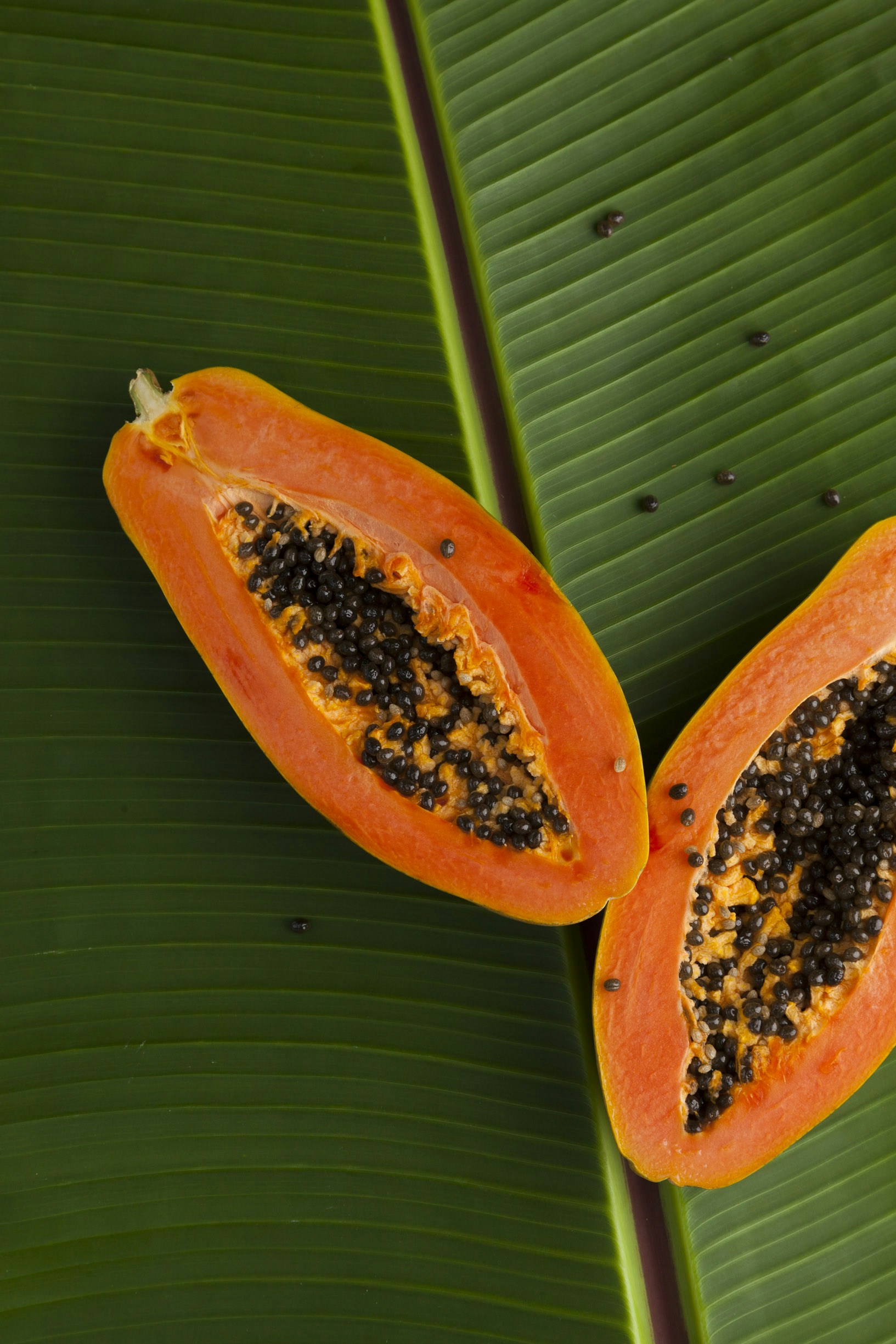
Organic Labels and Certifications
Understanding organic labels and certifications is crucial for making informed choices.
USDA Organic
The USDA Organic label is a trusted certification in the United States. To earn this label, a product must:
- Contain at least 95% organically produced ingredients.
- Be free from GMOs and other prohibited substances.
Other Certifications
We often encounter various other organic certifications which add to the trust and credibility of the product:
- EU Organic: Similar to USDA standards but tailored for the European market.
- IFOAM: An international certification ensuring high organic standards worldwide.
How to Make Healthier Choices
Knowing what we now do about organic processed foods allows us to make more informed decisions.
Read Labels
Reading labels carefully is fundamental. Important aspects to consider include:
- Ingredient List: Shorter lists with recognizable items are preferable.
- Nutritional Information: Ensure the product meets your nutritional needs.
- Certification Badges: Look for authentic organic certifications.
Balance with Whole Foods
While organic processed foods can be healthier, they shouldn’t dominate our diet. Balancing with organic whole foods like fruits, vegetables, and grains ensures maximum health benefits.
Moderation
Even organic processed foods often contain sugars, fats, and salt. Consuming them in moderation is essential for maintaining overall health.
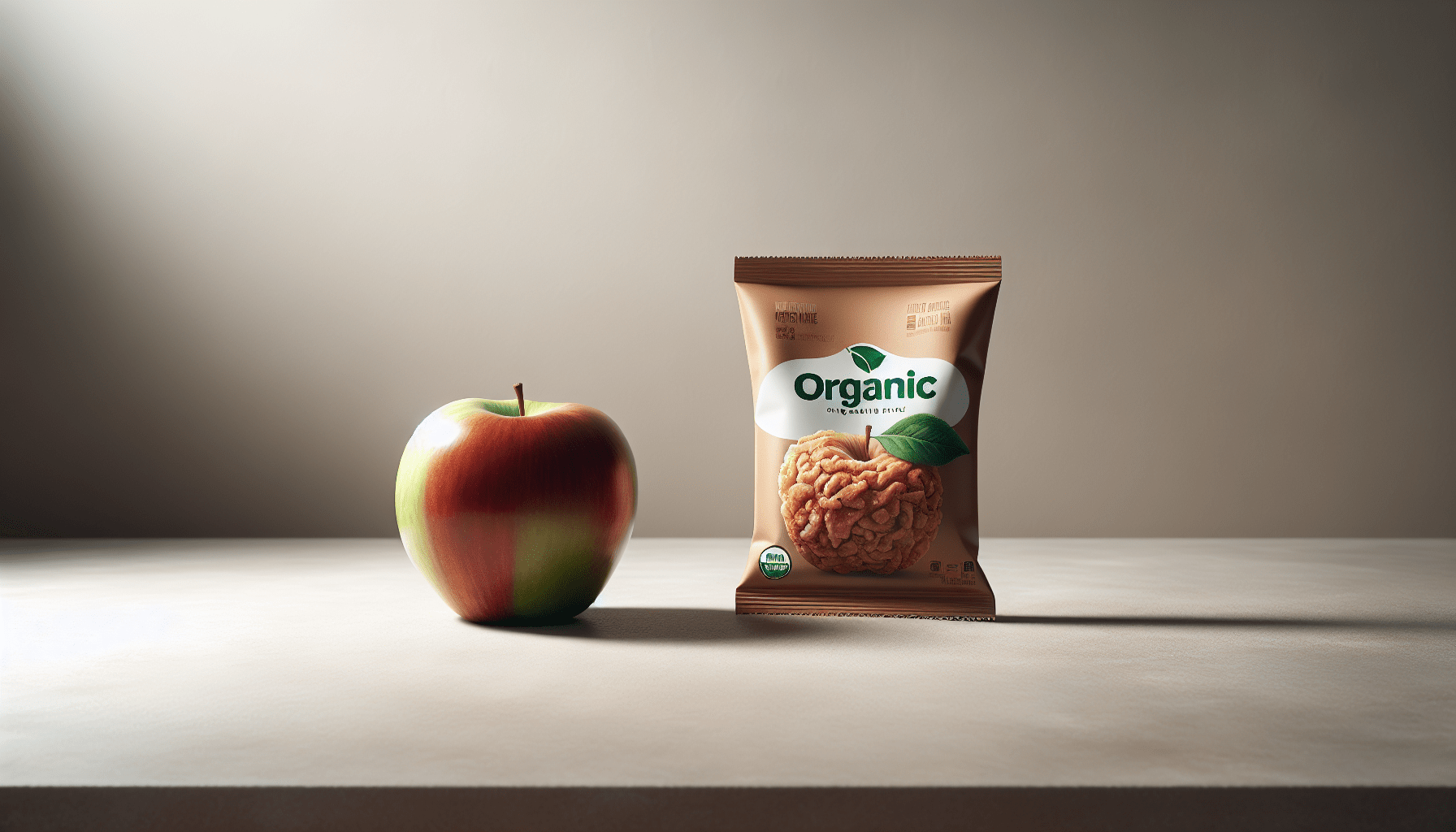
Misconceptions About Organic Processed Foods
We encounter several misconceptions that need to be addressed.
Organic Equals Healthy
Not all organic foods are inherently healthy. Organic cookies, while free from synthetic substances, are still cookies and should be consumed sparingly.
No Need for Portion Control
Portion control remains crucial regardless of whether the food is organic or not. Overeating, even organic foods, can lead to health issues.
Organic Foods Are Completely Pesticide-Free
While organic foods are grown without synthetic pesticides, they can still contain natural pesticides. However, these are generally considered safer.
Common Organic Processed Foods and Their Comparisons
Comparing common organic processed foods with their non-organic versions gives us practical insights.
Organic Cereal vs. Conventional Cereal
| Feature | Organic Cereal | Conventional Cereal |
|---|---|---|
| Pesticide Residue | None or very low | Higher levels |
| Artificial Additives | Absent | Common |
| Nutrient Density | Higher fiber, vitamins | Lower nutrient density |
Organic Snack Bars vs. Conventional Snack Bars
| Feature | Organic Snack Bars | Conventional Snack Bars |
|---|---|---|
| Ingredient Quality | Higher, natural | Lower, synthetic |
| Additives and Preservatives | Minimal | Common |
| Caloric Content | Similar | Similar |
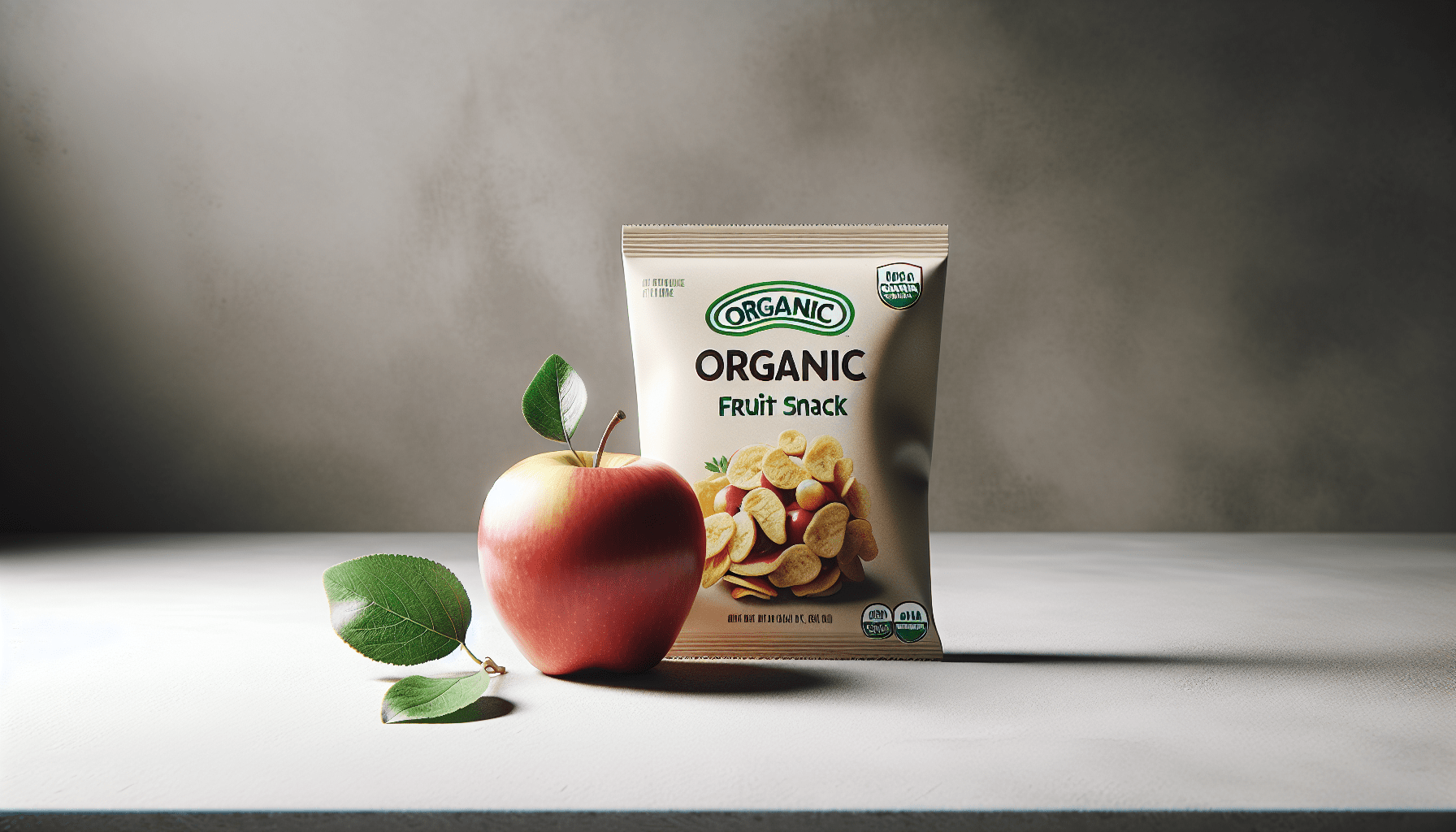
Real-world Tips for Incorporating Organic Foods
For practical implementation, here are a few tips on incorporating organic processed foods into our daily lives.
Budget-Friendly Shopping
Organics can be more accessible by adopting these strategies:
- Buy in Bulk: Bulk purchases often come at a reduced cost.
- Shop Seasonally: Seasonal organic products are generally cheaper.
- Use Coupons and Sales: Look out for discounts and promotions.
Homemade Organic Snacks
Prepare homemade snacks using organic ingredients to ensure quality and save money:
- Organic granola bars
- Organic vegetable chips
- Organic fruit smoothies
By implementing these practices, we reap the benefits of organic foods without straining our budget.
Conclusion
The question “Are organic processed foods truly healthier?” is multi-faceted and calls for a nuanced approach. While organic processed foods offer benefits like reduced exposure to harmful chemicals, higher nutritional value in some cases, and adherence to environmental and ethical standards, they are not a magic bullet for health. Moderation, mindful eating, and a balanced diet are key to harnessing their full potential.
Ultimately, choosing organic processed foods can be a significant step toward a healthier lifestyle. However, like any dietary choice, it must be part of a broader strategy grounded in informed decisions, balance, and moderation. We hope this comprehensive guide helps you make the best choices for your well-being and the planet.

